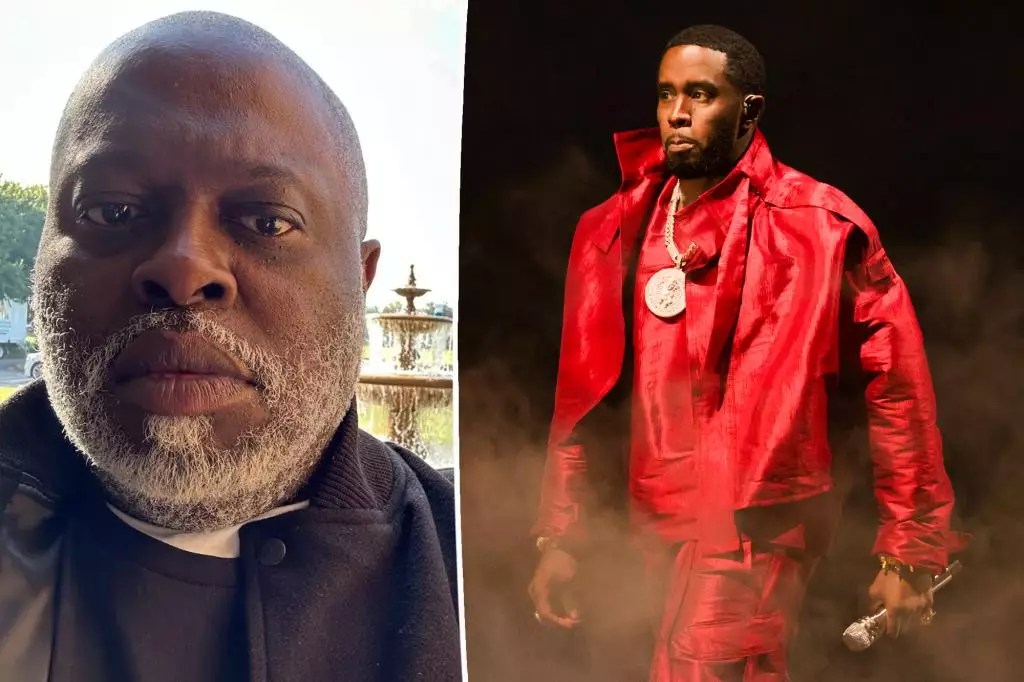In the complex world of celebrity culture, where public personas can be as volatile as the rumors that swirl around them, the case of Sean “Diddy” Combs illustrates the potential for reputational destruction through unverified claims. Recently, Combs filed a staggering $50 million defamation lawsuit against various parties, including his accuser Courtney Burgess, the attorney Ariel Mitchell, and Nexstar Media Inc., which operates NewsNation. This lawsuit is a response to serious allegations that have emerged over the past few years, drawing public attention and media scrutiny.
Unpacking the Allegations
At the heart of Combs’ lawsuit lies the claim that Burgess made outrageous accusations against him, asserting he is involved in sexual misconduct with celebrities and minors. According to the lawsuit, these assertions have been amplified by both Burgess and Mitchell, ultimately culminating in a public broadcast by NewsNation that presented these unfounded claims as fact. Burgess previously stated that he possesses flash drives containing explicit video material purportedly showcasing Combs engaging in dubious acts, allegations that have raised numerous ethical and legal questions.
The significance of these claims cannot be understated. Within the complaint, Combs details that Burgess had been making these false assertions repeatedly across various platforms, leading to a cascade of misinformation that affected his reputation on a global scale. The defense is particularly irked by the perceived reckless abandon with which major media outlets, like NewsNation, reported these allegations without sufficient verification. This raises ethical concerns regarding journalistic responsibility in the era of rapid news dissemination.
The Role of Media in Defamation Cases
Defamation lawsuits are often complex, particularly when they involve public figures. The public often leans on the media to provide balanced reporting; thus, when inaccuracies arise, the implications can be serious. Not only does it potentially harm the reputation of those accused, but it also erodes the trust between the media and its audience. The lawsuit against NewsNation underlines the delicate balance news media must maintain in reporting accusations that can have life-altering consequences for individuals in the spotlight.
Furthermore, the lawsuit posits that Mitchell, acting as Burgess’s legal representation, chose to disregard the veracity of the claims made by her client. This raises a crucial question about the ethical duties of attorneys and the degree to which they are accountable for the statements made by their clients during public forums. The legal ramifications for Mitchell may hinge on whether her actions constituted a failure to conduct due diligence, as Combs’ attorney claims.
While the defamation lawsuit unfolds, Combs is simultaneously grappling with other serious legal matters. In September 2024, he faced arrest on charges that include racketeering conspiracy and sex trafficking, among others. Combs has vehemently denied all allegations, insisting on his innocence, although the indictment paints a grim picture of a man who supposedly exploited vulnerable individuals for his own gratification.
This juxtaposition of the defamation lawsuit against ongoing criminal accusations illustrates the precarious nature of not just Combs’ public persona, but his entire fate as he navigates the legal landscape. Not only must he defend himself against claims that threaten to imprison him for decades, but he must also wrestle with the fallout from damaging assertions that could irrevocably tarnish his legacy.
The suite of allegations against Combs—both civil and criminal—opens a broader discussion about accountability in the entertainment industry. Celebrities often inhabit a realm that blends artistry with infamy, where the line between public persona and personal conduct can blur. The lawsuits and accusations underscore a growing demand for accountability in powerful figures who, historically, have evaded consequences for unacceptable behavior due to their celebrity status.
As the trial date approaches in Combs’ criminal charges—set for May 2025—his defamation suit could either strengthen his case in the court of public opinion or further complicate an already tumultuous situation. The dichotomy of seeking monetary compensation while defending oneself against severe accusations presents a unique challenge that could redefine how the public perceives both the legal system and figures of cultural significance.
As Sean “Diddy” Combs battles both accusations and his own defense, the outcomes of his legal proceedings may echo far beyond his personal life, possibly setting precedents for how media entities engage with sensational claims and how public figures engage with their own narratives.


Leave a Reply